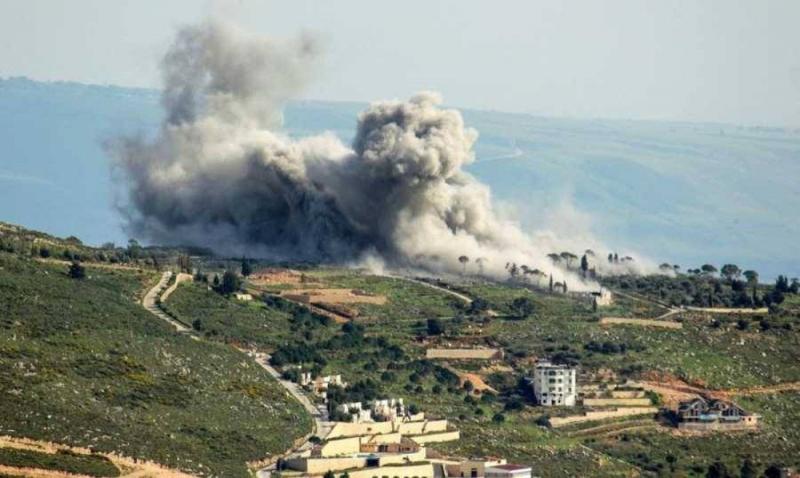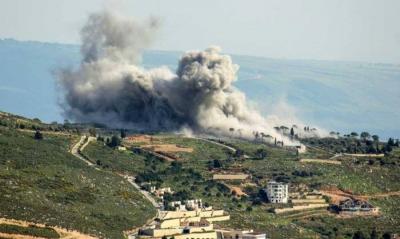Will the situation in Lebanon and the region be affected by the death of Iranian President Ebrahim Raisi and his accompanying delegation? Naturally, the impact on political and security issues is direct and significant. The Iranian president was influential in all these matters, particularly the Minister of Foreign Affairs, who oversaw Iranian foreign policy and its related aspects. Specifically, Foreign Minister Hossein Amir Abdollahian was the one supervising and monitoring the discussions that were taking place in various locations with the United States, the latest being in the Omani capital, Muscat.
As for how these ramifications will manifest and their connection to Lebanon and the region, the answers require surpassing the transitional phase that Iran will go through while awaiting a return to stability in the form and balances of the upcoming power. Essentially, the change in Iranian approaches may not be large or swift, particularly since the influential institutions in Iranian policies are still present, especially regarding the influence and orientations of the Supreme Leader, Ayatollah Ali Khamenei, along with the policies and directions of the actual ruling force in Iran, namely the Revolutionary Guard.
While waiting for clarity on the new and upcoming balances in Iran, which will impact Lebanon and the region, Lebanon is likely to continue in a state of confusion and an open lack of weight, exposed to uncomfortable possibilities. What's evident so far is that the actual files in Lebanon, particularly developments on the southern front alongside the Gaza conflict, are ongoing without interruption, as long as the confrontation in Gaza continues, which does not seem to be stopping soon. On the contrary, the collected data indicates that confrontations will continue for a long period ahead, especially with the launch of the Rafah battle, where it appears that Israel will proceed during an American break, primarily based on addressing some minor and formal aspects, which will not embarrass the U.S., demanding the consideration of minor aspects rather than substantive ones, such as being mindful of the heavy civilian losses.
Various Western analyses have concluded that Netanyahu's success in responding to the Iranian retaliation in Isfahan, as the U.S. desired, may justify allowing him to continue his attack on Rafah. This implies that Netanyahu’s calculated and precise response to Iran in Isfahan may have paved the way for him and his forces to launch a measured attack on Rafah, which is taking place in stages. This fluctuating test for Israel between striking Isfahan and Rafah may pave the way for American approval for a strike on Lebanon, aimed at restoring the concept of Israeli destructive deterrence, which was shattered by the battles in Gaza with Hamas, rather than expansion or occupation.
Amidst this, informed diplomats report that the Israeli government wants to achieve two things regarding Lebanon: first, to return settlers to their homes in the northern colonies adjacent to the Lebanese border, and second, to ensure that students in Israel return to their schools before the start of the academic year at the end of September 2024, which means before the end of the coming summer.
For these reasons, Netanyahu may focus on completing his intentions in Rafah before moving on to what he aspires to achieve with Lebanon. This matter seems closely linked to how the Israeli army behaves in Rafah, and whether it will succeed in implementing its plans without causing significant embarrassment for the current American administration, which is preoccupied with the upcoming presidential election.
Regarding this topic, there are several approaches. The first is that Iran, now wounded and disoriented after the death of its president and foreign minister, may be in a sensitive position that could lead others to overreach, based on the theory of its current distraction and weakness. Conversely, Iran, now injured, might be unwilling or unprepared to tolerate any American or Israeli overreach towards it, at a moment when its enemies might believe it is weak, causing unpredictable reactions in all directions.
From here, the approach that discusses Israeli tendencies to strike Lebanon to return displaced persons to their settlements and to Israeli students to their schools before the next academic year could lead to a wide and violent war, which all parties have sought to avoid so far.
Meanwhile, alongside the repeated discussions about solutions prepared by Hochstein regarding Lebanon and the south, concerning the borders, he informed deputies he met that the Shebaa Farms are out of discussion because they are Syrian and not Lebanese. Lebanon has not proven its Lebanese ownership so far, according to what he told them during his meeting with the opposition delegation.
Therefore, Hochstein awaits a ceasefire in Gaza to focus on southern arrangements post-Gaza. Will the coming summer days in Lebanon be scorching or inflamed? Amidst American preoccupation with its presidential elections? So far, as it seems, the tension in Lebanon continues. It is likely to remain, with a not-so-remote possibility of the flames expanding. Since all possibilities are open and all scenarios remain possible.




